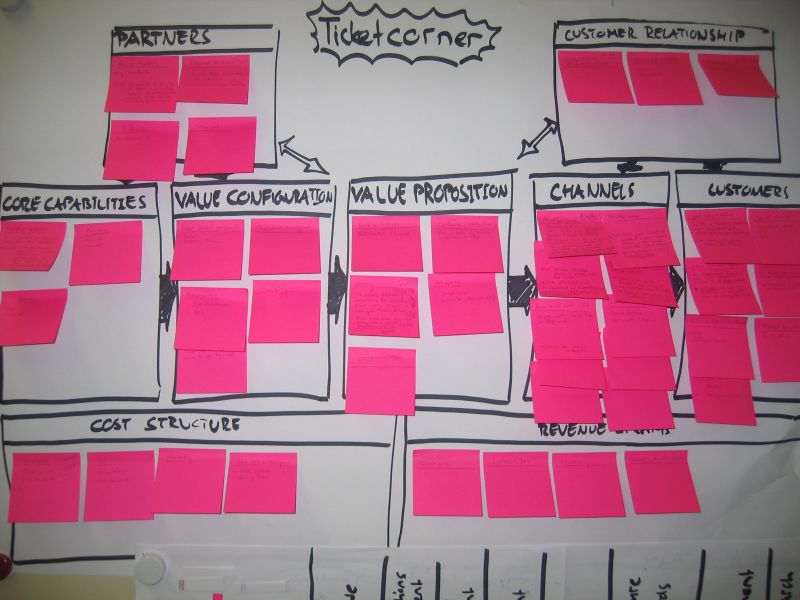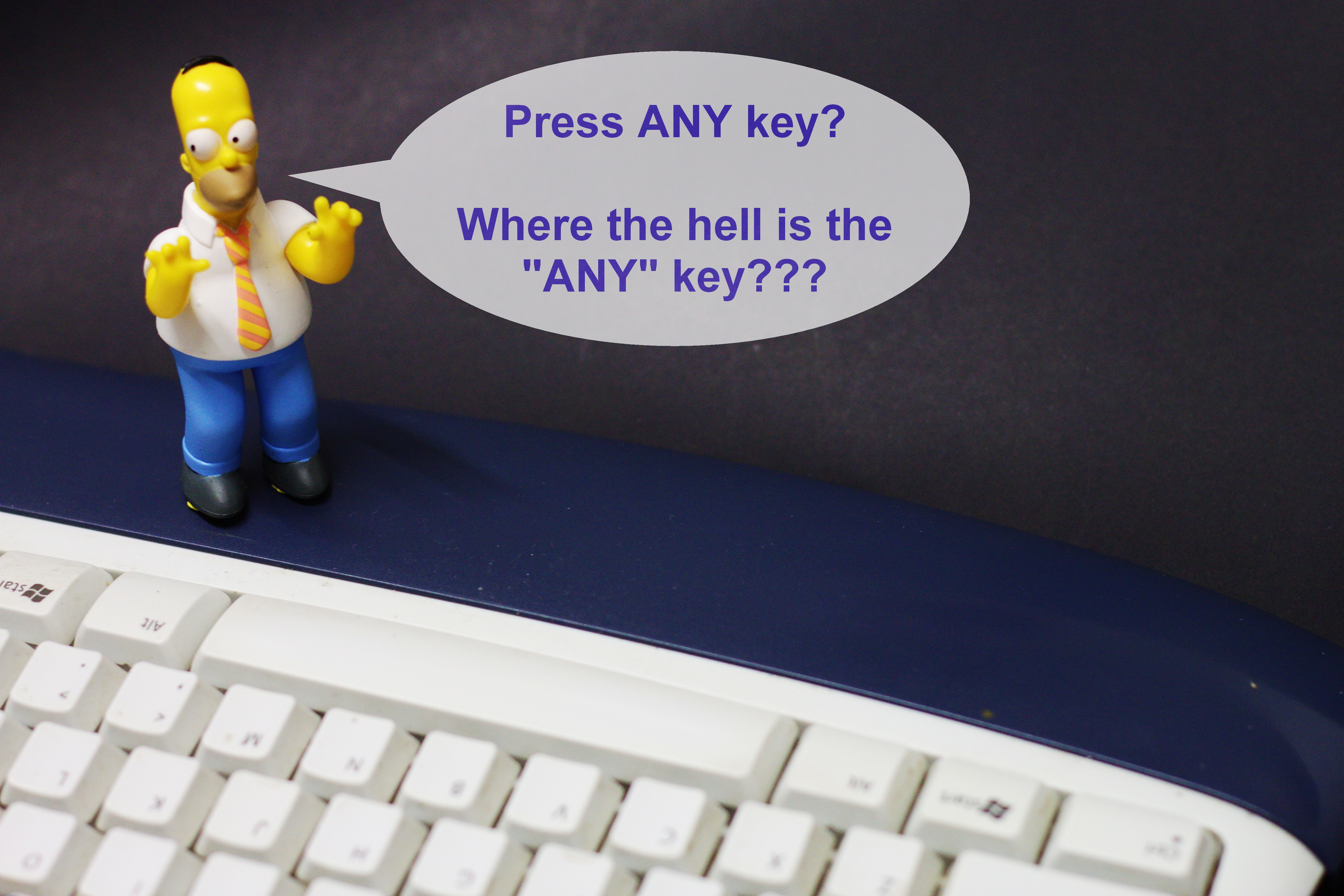
- SAP Community
- Groups
- Interest Groups
- Application Development
- Blog Posts
- Future of IT, is Psychology
- Subscribe to RSS Feed
- Mark as New
- Mark as Read
- Bookmark
- Subscribe
- Printer Friendly Page
- Report Inappropriate Content
Enterprise IT is typically about Technology and Functionality. We've always been very good at identifying functional requirements, and translating them into a technical solution. I have noticed however, that a third discipline is entering the field. The discipline of human behaviour.
Psychology.
To some, this may sound strange. How on earth could lying on a couch and talking about your feelings help your IT project? Except for maybe avoiding burn-outs on the project team.
Others might say: Duh.
I know some people who will probably smile and say: "I told you this 8 years ago already!". And they're right. They did tell me that 8 years ago, but I couldn't be arsed back then.
Psychology is not only "talking about your feelings". It's the study of human behaviour. Our IT applications are intended to fill a business requirement, by giving tools to a user (a person) so he can do the work required. There are already multiple stages in that statement alone, in which human behaviour will affect the result of our IT project.
#Requirement gathering phase
During workshops, IT folks talk with business chaps. The business chaps have certain issues. They require solutions to overcome some of their problems. The IT folks will try to understand the problems and suggest different possible solutions.
Is it just me, or does this sound a lot like "lying on a couch and talking about your issues?"
#Design phase
No doubt that the design of your product, will affect the adoption of your product. This is not only about the colours and shapes on the screen. It's also about the amount of data visible, the screen-flow the available functionality and the simplicity of use.
In most companies, one of the techies is responsible for the front-end design. If you're lucky, the guy has a sense of taste. Most of the times however, the front-end looks like they just mashed something together at the end, to facilitate the use of the functionality. Not much different from generated test screens really.
 In some instances however, the project team involves dedicated designers. These men and women not only have a sense of taste, they also understand how people will interact with your application. Their understanding goes beyond the colours and shapes. They see the functionality through the eyes of an end-user. It's not a co-incidence that design studies include psychology classes. You have to understand human behaviour, before you can capture it in a tool.
In some instances however, the project team involves dedicated designers. These men and women not only have a sense of taste, they also understand how people will interact with your application. Their understanding goes beyond the colours and shapes. They see the functionality through the eyes of an end-user. It's not a co-incidence that design studies include psychology classes. You have to understand human behaviour, before you can capture it in a tool.
A topic that frequently pops up in #design related discussions is #empathy. The power to put yourself in someone else's place and see the world through their eyes. It can be incredibly helpful to find the right solution, or even more basic, find the right problem. #Empathy is a powerful tool, but if you really want to get valuable input from different perspectives, than it's even better to #include different people. A simple example, if there is one colour blind person in the user base, you'd do best to include him/her during the design.
Testing and Training phase
At some point in time, the application will be more or less ready for a limited audience. Again, in most cases, they just pass the application on to a testing team, which is actually just a team of tech guys that will now test each-others work. If these tests are successful, the application is released to business, and they start using it in production. This obviously leads to a heap-load of issues, bugs and tickets in the first months. Effectively, they are testing in production.
You may have been in such a situation, and you may have even noticed that most of the issues are #PEBKAC (Problem Exists Between Keyboard And Chair). But are they really? Isn't it our mission to create a solution to a business problem, rather than delivering functionality which creates usability problems?
Ideally, after the technical tests, you would create a group of actual end-users, and send them through usability testing. In #usability testing, it's not so much about the functionality. You're also not testing the user. No, you're going to test the ease of use of the application. The users will try to solve certain tasks whilst someone observes how they interact with the system. Which buttons do they click? How do they find help? How do they interpret certain texts? Do they even read the popups?
The results of these observations can than be used to improve the usability of the application. It helps if the observer has a good eye for human behaviour and is able to analyse actions to find the underlying thought process. A psychologist for example. Just saying...
Productive phase
At some point, real people will actually start using your product. You may want to make sure that they can use it efficiently and that they find their work rewarding. Such motivational aspects are called #Gamification nowadays. In essence it's using certain mechanics to keep your users involved. Show them tangible results on their daily work. It makes them proud and it will drive the continued adoption of your project.
When it comes to #Gamification, balancing the rewards, efforts, missions etc... is a very important and very difficult job. Creating a mission sounds easy enough, but if that mission must be, not too hard, not too simple, suited for the purpose of the application attractive to the users, in line with the target groups behaviour, aligned with corporate strategy and yield the right amount of reward and feedback,.... uhm... Right... Lemme see...
Again, someone with a psychology background, together with a business expert, may combine the skills necessary to create a well balanced #gamification system.
Marketing
Suppose your project was not intended for in-house usage, but must go public and has to reach customers? At some point, you will have to launch a marketing campaign. A lot of marketing is done via #social media nowadays. It's very important to know your audience. Every #Social media channel has it own specific user group, behaviour, netiquette,...
There's a lot of research being done to how people use #social media, and what kind of personalities are represented, or stimulated via different channels. This research can be crucial to marketeers to know how to promote something and on which channel they must engage to reach the target audience.
It looks to me, as if Psychology is becoming an increasingly more important part of IT, and it's about time we get professional help
PS: I have some firends who majored in psychology and compain how hard it is to find a job these days. In my opinion, there could be a whole range of possibilities in IT, to have a rewarding and genuinely challenging job as a psychologist. This could open up a whole new jobmarket.
- SAP Managed Tags:
- Design Thinking
You must be a registered user to add a comment. If you've already registered, sign in. Otherwise, register and sign in.
-
A Dynamic Memory Allocation Tool
1 -
ABAP
8 -
abap cds
1 -
ABAP CDS Views
14 -
ABAP class
1 -
ABAP Cloud
1 -
ABAP Development
4 -
ABAP in Eclipse
1 -
ABAP Keyword Documentation
2 -
ABAP OOABAP
2 -
ABAP Programming
1 -
abap technical
1 -
ABAP test cockpit
7 -
ABAP test cokpit
1 -
ADT
1 -
Advanced Event Mesh
1 -
AEM
1 -
AI
1 -
API and Integration
1 -
APIs
8 -
APIs ABAP
1 -
App Dev and Integration
1 -
Application Development
2 -
application job
1 -
archivelinks
1 -
Automation
4 -
BTP
1 -
CAP
1 -
CAPM
1 -
Career Development
3 -
CL_GUI_FRONTEND_SERVICES
1 -
CL_SALV_TABLE
1 -
Cloud Extensibility
8 -
Cloud Native
7 -
Cloud Platform Integration
1 -
CloudEvents
2 -
CMIS
1 -
Connection
1 -
container
1 -
Debugging
2 -
Developer extensibility
1 -
Developing at Scale
4 -
DMS
1 -
dynamic logpoints
1 -
Eclipse ADT ABAP Development Tools
1 -
EDA
1 -
Event Mesh
1 -
Expert
1 -
Field Symbols in ABAP
1 -
Fiori
1 -
Fiori App Extension
1 -
Forms & Templates
1 -
General
1 -
Getting Started
1 -
IBM watsonx
1 -
Integration & Connectivity
10 -
Introduction
1 -
JavaScripts used by Adobe Forms
1 -
joule
1 -
NodeJS
1 -
ODATA
3 -
OOABAP
3 -
Outbound queue
1 -
Product Updates
1 -
Programming Models
13 -
Restful webservices Using POST MAN
1 -
RFC
1 -
RFFOEDI1
1 -
SAP BAS
1 -
SAP BTP
1 -
SAP Build
1 -
SAP Build apps
1 -
SAP Build CodeJam
1 -
SAP CodeTalk
1 -
SAP Odata
1 -
SAP UI5
1 -
SAP UI5 Custom Library
1 -
SAPEnhancements
1 -
SapMachine
1 -
security
3 -
text editor
1 -
Tools
17 -
User Experience
5
| User | Count |
|---|---|
| 5 | |
| 2 | |
| 2 | |
| 2 | |
| 2 | |
| 2 | |
| 2 | |
| 1 | |
| 1 | |
| 1 |
